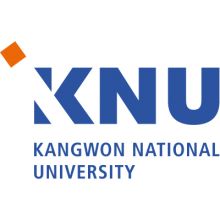关于 National University of Quilmes
The National University of Quilmes (Universidad Nacional de Quilmes or UNQ) was founded in 1989 with the aims of teaching, research, extension courses, human resources formation, technological development, product innovation and culture promotion.
UNQ's building was constructed on land donated by the textile company Fabril Financiera and it opened its doors with only 10 classrooms for its first thousand students. It now has over 11,000 students, distributed among its graduate courses and postgraduate courses of study. It has grown to become one of the most important universities in Argentina, located in the heart of the Southern Buenos Aires metropolitan area in Bernal City, Quilmes.
It is organised under a departmental structure, with three departments: science and technology, social sciences, economics and administration and a university school of arts.
In 1999, the National University of Quilmes inaugurated its first virtual classroom, making it one of the first public universities to go on the internet. Through the Quilmes Virtual University Program, the UNQ became a pioneer university in the field of non-classroom education in Latin America. Many students from all over the world have been able to access quality training in their own time as a result, without the need to synchronise with teachers or move to attend classes.
UNQ has a Science and Technology Studies Institute (IEC), founded in 1996, which focuses on scientific research, postgraduate courses teaching, knowledge promotion within the specific fields, and consulting and technical assistance activities. It has two permanent research programmes: “Sociohistorical Studies of Science and Technology” and “ History and Philosophy of Science and Technology”.
National University of Quilmes 的排名数据分析
对比大学重要统计数据
关键统计数据
- 33.8每位教职员对学生数量(1)
- 2%国际学生比例(1)
- 55 : 45女生对男生的学生比例(1)
- n/aArray(1)
- 44,965Number of FTE Students(1)
National University of Quilmes 的授予学科
Clinical, pre-clinical & health
- Other Health
Education
- Education
Social sciences
- Sociology
- Politics & International Studies (incl Development Studies)
- Communication & Media Studies
Life sciences
- Biological Sciences
Arts & humanities
- Art, Performing Arts & Design
- History, Philosophy & Theology
Computer science
- Computer Science
Business & economics
- Economics & Econometrics
- Accounting & Finance
Engineering & technology
- General Engineering










